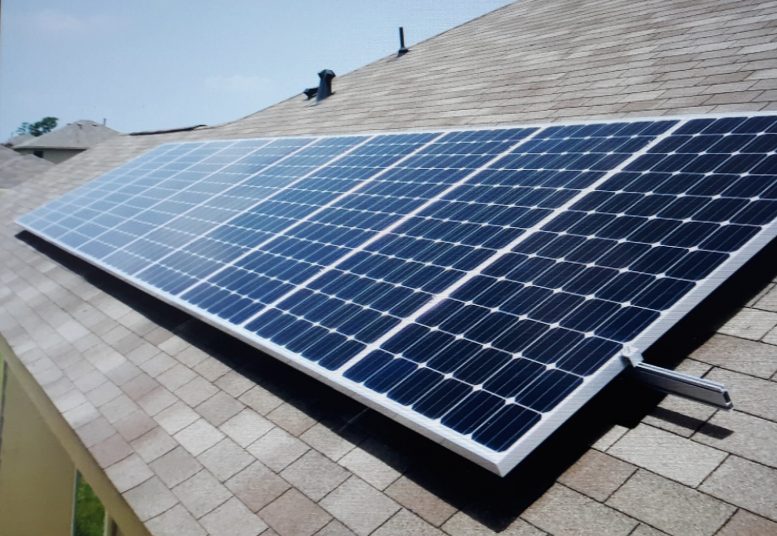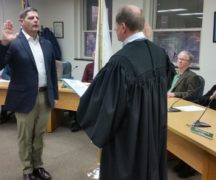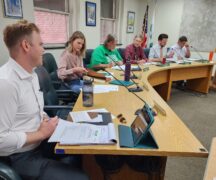By JAN LARSON McLAUGHLIN
BG Independent News
In the wake of a complaint about Bowling Green’s rooftop solar policy, City Council members talked Tuesday about the value of providing incentives for residents wanting to install solar panels.
Joe DeMare, who lodged the complaint, got City Council’s interest by talking about solar energy. But he raised their ire by referencing the House Bill 6 scandal.
DeMare voiced objections to the city’s policies of increasing fees for homeowners who install rooftop solar panels and reducing the amount the city pays for the extra power generated by these installations.
“This really discourages anyone from putting solar panels on their homes in Bowling Green,” he said. “This is not what a progressive community does.”
Public Utilities Director Brian O’Connell has explained the fee is necessary to make sure other electric customers in the city aren’t subsidizing those who choose to install rooftop solar panels.
The electric rates in the city are based on customers buying their energy from the city. A smaller portion of the rates is based on fixed costs for the electric system for such items as meters, poles, wire, transformers, switches and linemen – items needed for all homes including those with rooftop solar, O’Connell said.
“Those fixed costs don’t change just because someone decides to put rooftop solar on their home,” he said.
DeMare had City Council’s attention, talking about green energy. But then he questioned whether or not council was getting accurate information from the city utility department.
DeMare compared the logic of rooftop solar fees to charging people more for conserving power at their homes.
“Are we going to start penalizing people who do that?” he asked.
DeMare talked about testifying against the scandal-filled House Bill 6 two years ago, then added, “This smells the same.” He accused the utilities department of being more worried about profits of coal plants than promoting clean energy.
“It’s pretty discouraging,” he said, adding that some city residents with rooftop solar systems may take the issue to court since they feel the city changed the terms of contracts with them.
DeMare accused the city of having a policy “hostile” to rooftop solar, which will discourage homeowners from having them installed. He asked City Council to reverse the decision on the rooftop solar fee.
Council members reacted strongly to DeMare’s statements.
“I am insulted that you would stand before City Council and compare us to one of the biggest bribery schemes,” council member Sandy Rowland said. “I feel that’s very low.”
DeMare apologized and said that wasn’t his intent, but the damage had been done for some council members.
“As a council, we are not obligated to entertain personal attacks against members of this administration,” council member Greg Robinette said. “I am offended and I apologize to Mr. O’Connell because we as a council did not step in and stop this travesty.”
Council member Bill Herald said City Council has thick skins, but that city employees should not be the target of such vitriol at public meetings.
“There is freedom of speech,” Herald said. “But it’s reasonable to request a bit of decorum.”
Mayor Mike Aspacher agreed.
“I join you in feeling they were very inappropriate,” he said of DeMare’s comments.
Council member Jeff Dennis inquired if council has the authority to change rates set by the city’s Board of Public Utilities, and City Attorney Mike Marsh replied that council has no such power.
So DeMare was advised to take his concerns to the Board of Public Utilities.
But his criticisms did stir some interest in City Council members to look into the possibility of incentivizing home solar systems.
Council President Mark Hollenbaugh, John Zanfardino, Jeff Dennis and Rachel Phipps expressed a desire to research the possibilities.
“We have a role to play here,” Phipps said. “I do want to learn more about this issue.”
Dennis expressed concerns about the present rate setting system.
“Unfortunately, as we learned last night, in Bowling Green the Board of Public Utilities – an unelected board – has the unilateral authority to set rates and implement utility policy without the input of our elected officials,” Dennis said on Wednesday. “Not only that, when objections are raised there is no mechanism for amending or repealing the policy at issue.”
The new fees will go into effect in July, and will start out charging $1 a month per kilowatt capacity. That will be $6 per month for a system like DeMare’s which produces six kilowatts.
The fee will increase $1 annually, until it reaches the ceiling of $4 per kilowatt capacity – or $24 a month for DeMare.
O’Connell has stressed that Bowling Green is committed to solar energy – evidenced by the largest municipal-owned solar field in the state, located east of the city.
“We are not against renewable energy,” he said. “But there’s also a financial obligation to make sure the system is kept whole.”





